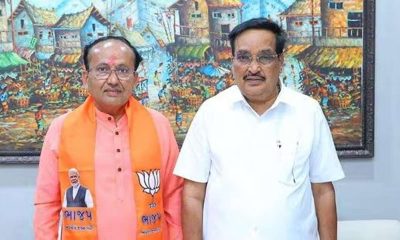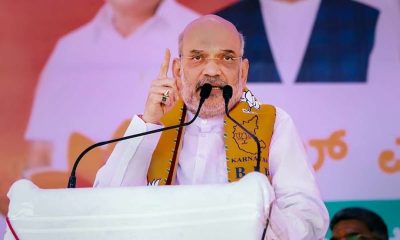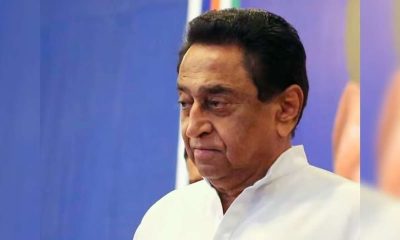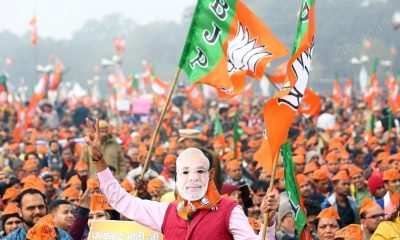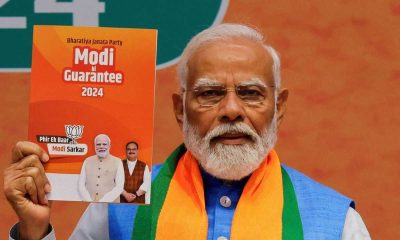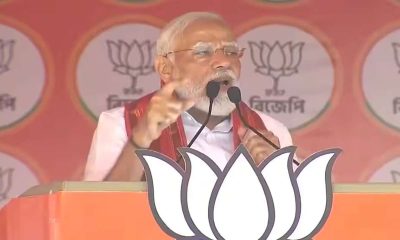India News
After BSP, Congress internal tussle in Madhya Pradesh likely to send away SP as well
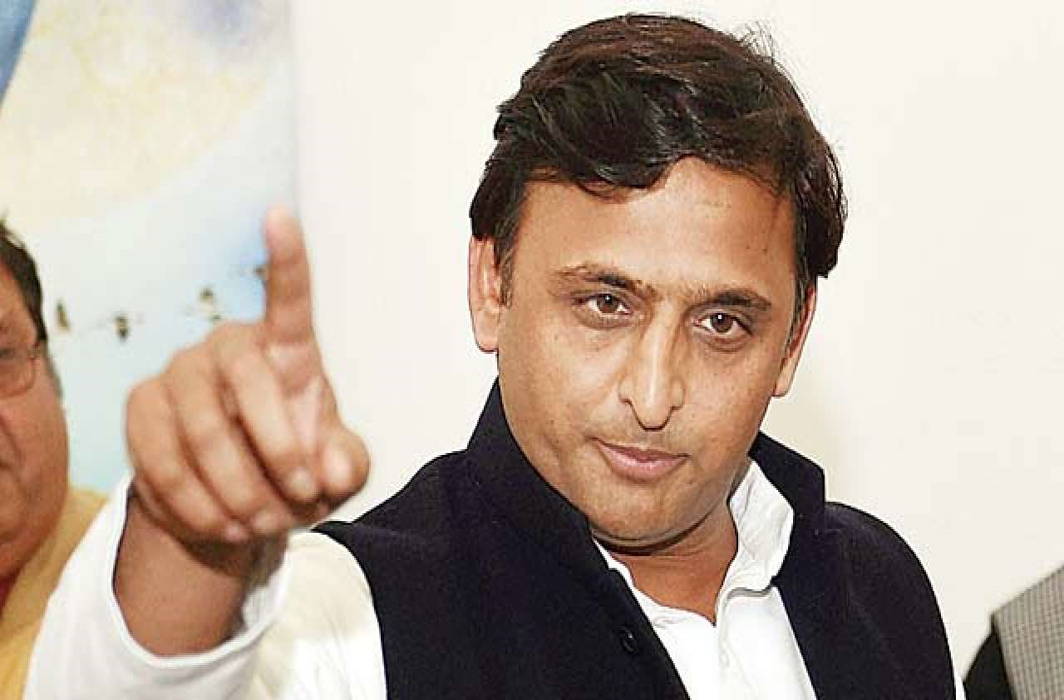
The Samajwadi Party (SP) chief Akhilesh Yadav said today, (Saturday, October 6), just before the election schedule was about to be announced, that the party had “waited too long” for the Congress and will now talk to the BSP and the Gondwana Gantantra Party for the Madhya Pradesh polls.
The SP’s move comes days after Bahujan Samaj Party (BSP) president Mayawati parted ways with the Congress, alleging that the Rahul Gandhi-led party was adopting a stubborn attitude and it was out to finish her party.
“We have waited too long for the Congress. How much longer should we wait? We will now consult the Gondwana Gantantra Party (GGP), with which we had an alliance, and the BSP for the coming assembly elections in Madhya Pradesh,” said Yadav according to media reports.
Yadav had asked the Congress to show large- heartedness for the upcoming elections as any delay will prompt smaller parties to declare their candidates.
On Wednesday, the Samajwadi Party chief Akhilesh Yadav had urged the Congress to show large heartedness, saying delay in seat sharing talks might prompt other parties to declare their candidates for the upcoming assembly elections.
“I am saying even today that the Congress should show its large-heartedness, and it should contest elections by taking along all the political parties who have similar thoughts and ideology,” Yadav said. He had warned that any delay would endanger the formation of a grand alliance.
“After this, they (Congress) will be levelling allegations that they colluded with the BJP,” Yadav reportedly said to media persons in Lucknow.
State leaders of the Congress have opposed the number of seats Mayawati demanded, saying her party was in no position to win many of them and would only benefit the BJP. Senior party leader Digvajaya Singh had even said Mayawati was not signing a deal with the Congress because of the investigations into the corruption cases against her.
An enraged Mayawati announced on Wednesday that she would not contest the election in Madhya Pradesh and Rajasthan in an alliance with the Congress “at any cost”.
Over the past weeks, it became increasingly clear that the Mayawati-Congress seat-sharing talks were a no-go. Mayawati had demanded 40 of Madhya Pradesh’s 231 seats, but with a package deal in Rajasthan. While Madhya Pradesh Congress was agreeable to a deal though with a rider on the number of seats to be offered, the Rajasthan Congress was of the view that it would be Mayawati who would benefit from any seat sharing arrangement in the state. Mayawati made it clear that she would not make any deal unless her demands were met.
Mayawati, however, left the window open for a tie-up in the 2019 national election, for which the opposition plans to join forces against the BJP.
Earlier last month, the BSP chief had announced a tie-up for the Chhattisgarh polls with Ajit Jogi, who was expelled by the Congress in 2016 and is seen to have enough firepower to singe the party in a state it hoped to win after BJP’s 15-year rule.
2024 Lok Sabha Elections
PM Modi says Congress leaders consider themselves above Lord Ram
PM Modi slammed Congress during a rally in Chhattisgarh, ahead of the Lok Sabha elections 2024
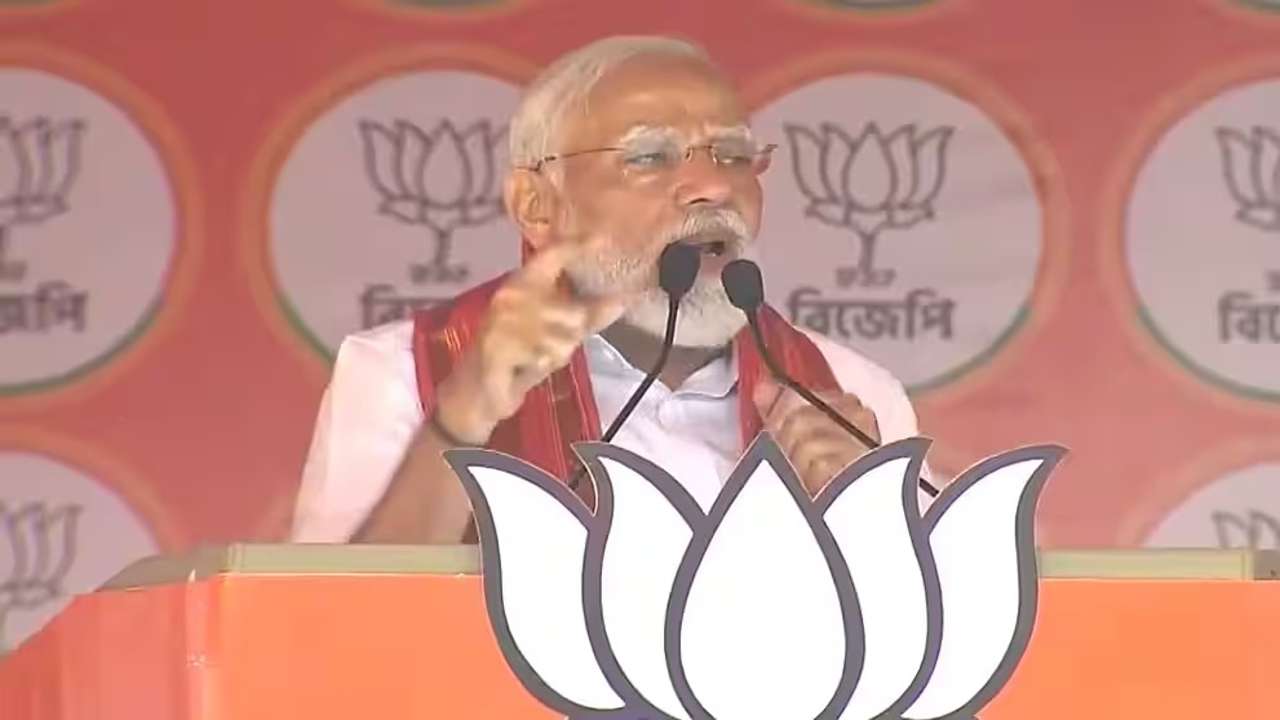
Prime Minister Narendra Modi slammed the Congress party for declining to attend the pran pratishtha ritual at the Ayodhya Ram temple on January 22 this year.
The prime minister said Congress leaders consider themselves above Lord Ram and denied invitation for Pran Pratishtha at Ram Temple, while speaking at a rally in Janjgir-Champa, Chhattisgarh. The PM question the people present at the rally that is it not a disrespect of Mata Shabri? Congress leaders inclination toward appeasement politics runs in their family.
For political appeasement, they won’t think twice about stealing the rights of Adivasis, the poor, and Dalits. Poor, young, and women are BJP’s top priorities, Modi said.
PM Modi criticized the Congress again during the rally for claiming that the BJP would alter the constitution.
The leaders of Congress recite the same old phrases whenever an election is about to happen, the PM said. He also said they claim that if the BJP wins power, it will renounce the constitution and abolish reservations. For how long will you continue selling lies?” he asked.
The prime minister continued saying that nobody can change the Constitution, even if Dr. Babasaheb Ambedkar were to come and insist on it, it wouldn’t happen.
Those in the Congress threaten to break Modi’s head. Nobody can harm Modi as long as the mothers and sisters of this county stands by him. These mothers and sisters are Raksha Kavach, Modi remarked.
The prime minister further attacked the Congress after Viriato Fernandes, the party’s candidate for South Goa, asserted that Goa was forced to adopt the Indian Constitution.
Referring to his conversation with Congress leader Rahul Gandhi ahead of the 2019 Lok Sabha elections, Fernandes said he had told him, when Goa was liberated in the year 1961, the Indian Constitution was forced upon us.
The prime minister said, Congress candidate from Goa says Constitution was forced upon Goans; is this not an insult of Ambedkar and Constitution.
2024 Lok Sabha Elections
Amit Shah says neither Congress nor Trinamool chief Mamata Banerjee can interfere with CAA
Amit Shah revealed the BJP’s target for West Bengal and said they have set a target of winning 35 Lok Sabha seats from West Bengal.
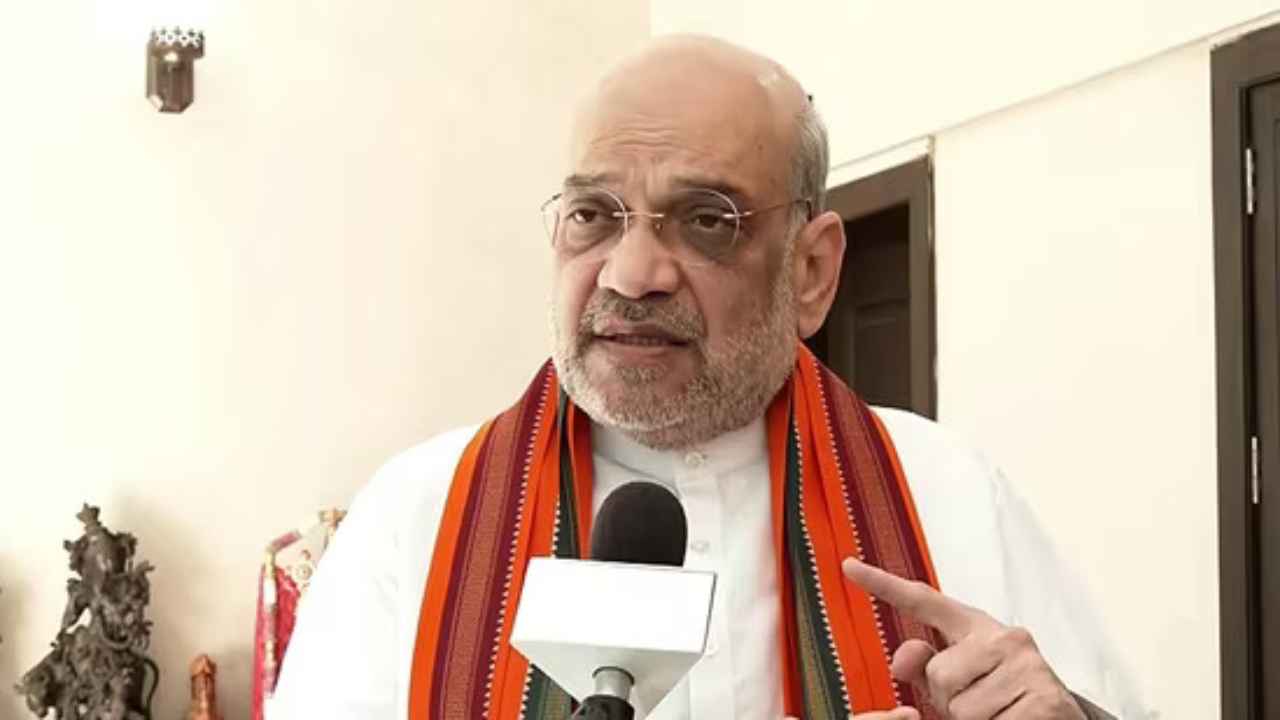
Union home minister Amit Shah on Tuesday said neither Congress nor Trinamool Congress chief Mamata Banerjee can interfere with the Citizenship Amendment Act (CAA). He was speaking at the Karandighi rally in West Bengal where he also made the prediction as to how many seats BJP will win in the Lok Sabha elections in West Bengal.
The union home minister asked the masses to cut the money culture. Amit Shah revealed the BJP’s target for West Bengal and said they have set a target of winning 35 Lok Sabha seats from West Bengal. In 2019 Lok Sabha elections the BJP had won 18 out of 42 seats in West Bengal. He asked Mamata Banerjee, what problem will she have if the Buddhist and Hindu refugees from Bangladesh get citizenship in India?
Shah further added if the people of West Bengal want to stop infiltration in the state, then they will have to make Narendra Modi the Prime Minister of India again. He said if the people of West Bengal want to free Bengal of violence, stop infiltration in the state, give citizenship to refugees, to stop disrespecting mothers and sisters of the state as it happened in Sandeshkhali, then only way is to make Narendra Modi the Prime Minister.
Amit Shah said that PM Modi had sent Rs 7 lakh crore to West Bengal but the TMC indulged in corruption. He said one can see the houses of Trinamool Congress leaders; 10 years ago they used to live in a hut, moved on cycle and now all of them have 4-storey houses and move around in big cars. He added this is the money of people of West Bengal.
The Citizenship Amendment Act (CAA), will make it easier for non-Muslim refugees from Afghanistan, Pakistan and Bangladesh to get Indian citizenship, was enacted in 2019. But the rules were notified in March this year by the Centre.
2024 Lok Sabha Elections
Prime Minister Narendra Modi says listening to Hanuman Chalisa under Congress rule is a crime
PM Modi was addressing an election rally in Rajasthan’s Tonk-Sawai Madhopur, on a day as India celebrates Hanuman Jayanti.
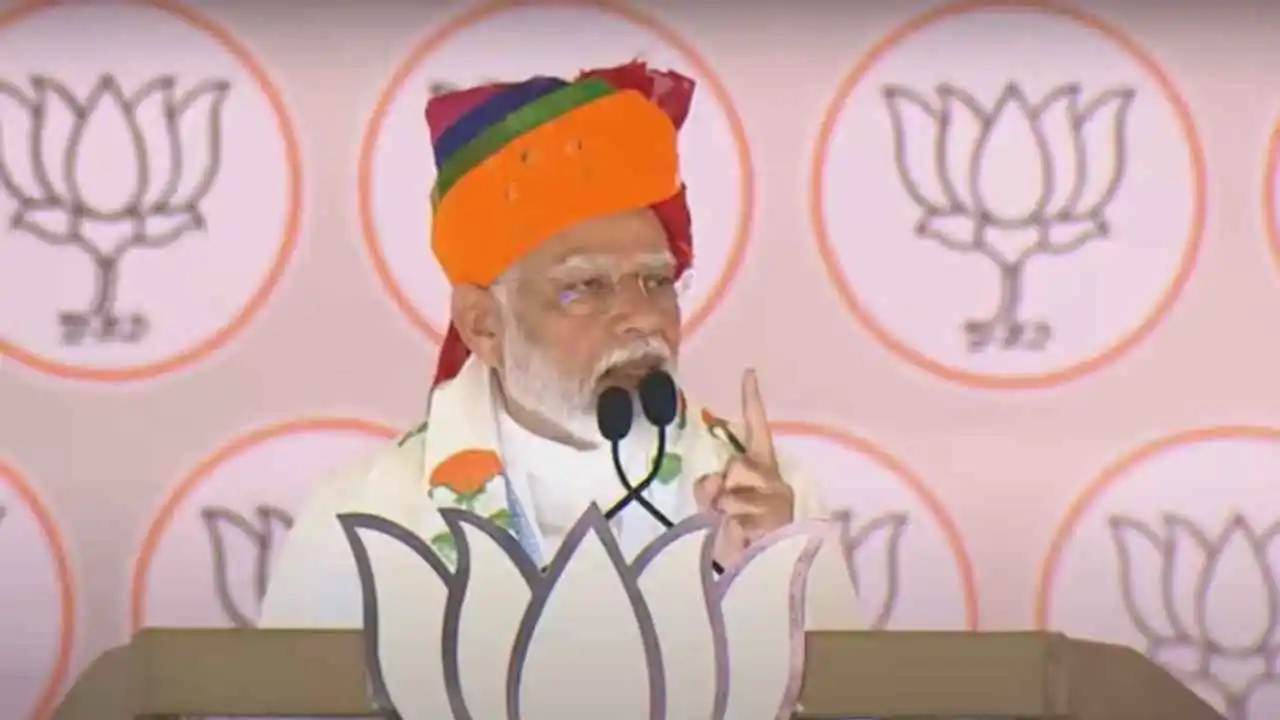
Prime Minister Narendra Modi on Tuesday hit out at the Congress and said even listening to Hanuman Chalisa has become a crime under the party’s rule. The Prime Minister also said it was difficult to follow one’s faith under the party and accused it of hatching a deep conspiracy to snatch people’s wealth and distribute it among selected few people in the society. PM Modi was addressing an election rally in Rajasthan’s Tonk-Sawai Madhopur, on a day as India celebrates Hanuman Jayanti.
PM Modi said in a state like Rajasthan where people chant Ram-Ram, Congress banned Ram Navami. He reffered to the redistribution of wealth remarks he had made during a rally in Rajasthan’s Banswara on Sunday and said it has angered the Congress and INDI Alliance so much that they have started throwing abuses at Modi everywhere.
The Prime Minister said that Congress has written in their manifesto that they will survey the wealth. He said the Congress leadership had said in a speech that an X-ray of wealth will be done. He added when Modi exposed the secret then the hidden agenda came out and this has left the people trembling. PM Modi further added that the Congress party has played with the Constitution of the India.
He said when the Constitution was drafted, reservations based on religion were opposed, so that Scheduled Casts (SC), Scheduled Tribes (ST) and Other Backward Classes (OBC) could get protection. He said former Prime Minister Dr Manmohan Singh had said that Muslims have the first right to the country’s resources. The prime minister further added Congress’s ideology has always been of appeasement and vote bank politics. He said stones would still be pelted in Jammu and Kashmir, and enemies would still be cutting off the heads of India’s soldiers had Congress been in power.
-
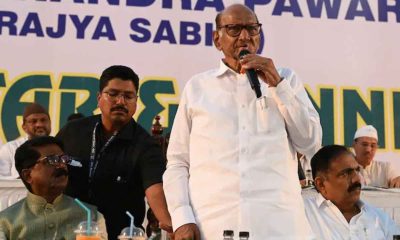
 2024 Lok Sabha Elections10 hours ago
2024 Lok Sabha Elections10 hours agoNCP (SP) leader Sharad Pawar says Prime Minister Narendra Modi is trying to create fear like Russian President Vladimir Putin
-

 Cricket news12 hours ago
Cricket news12 hours agoIPL 2024: Yashasvi Jaiswal hits brilliant century to help Rajasthan Royals beat Mumbai Indians by 9 wickets
-
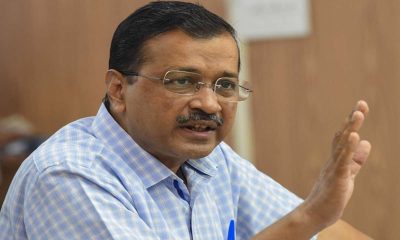
 India News12 hours ago
India News12 hours agoArvind Kejriwal given insulin in Tihar jail after sugar levels touch 320
-

 Entertainment10 hours ago
Entertainment10 hours agoMithun Chakraborty, Usha Uthup honoured with Padma Bhushan
-

 India News11 hours ago
India News11 hours agoSalman Khan house firing case: Mumbai crime branch recovers gun, cartridges from Tapi River in Surat
-
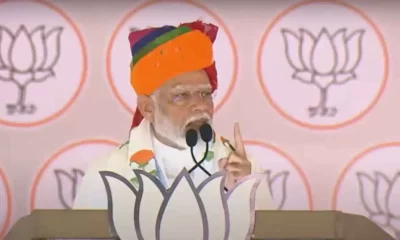
 2024 Lok Sabha Elections9 hours ago
2024 Lok Sabha Elections9 hours agoPrime Minister Narendra Modi says listening to Hanuman Chalisa under Congress rule is a crime
-

 Entertainment8 hours ago
Entertainment8 hours agoFan jumps on stage and hugs Atif Aslam during concert, video goes viral
-
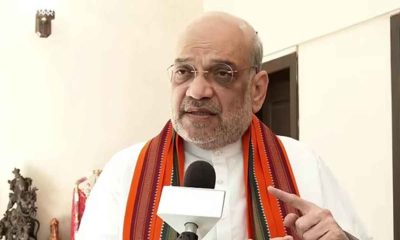
 2024 Lok Sabha Elections6 hours ago
2024 Lok Sabha Elections6 hours agoAmit Shah says neither Congress nor Trinamool chief Mamata Banerjee can interfere with CAA

